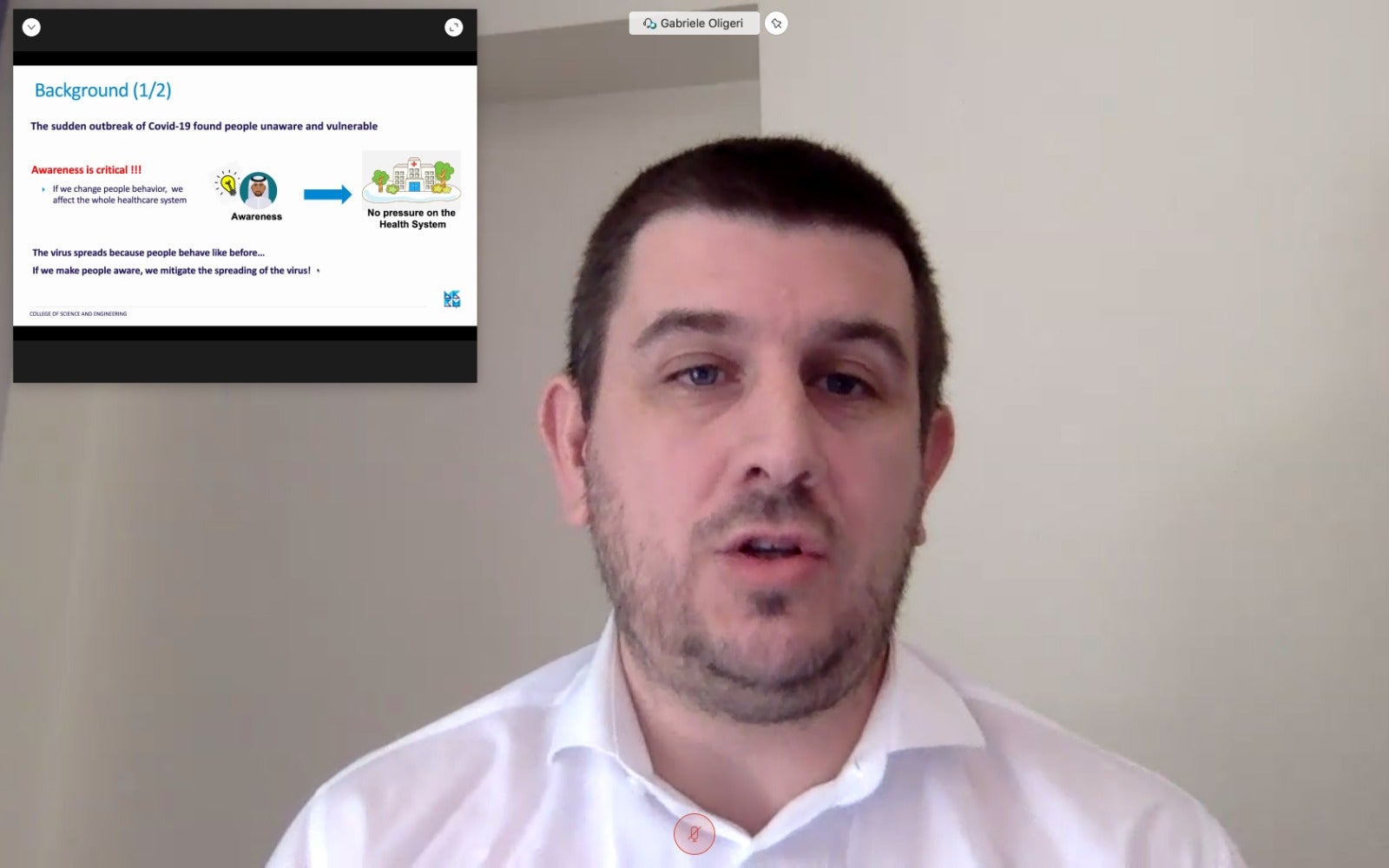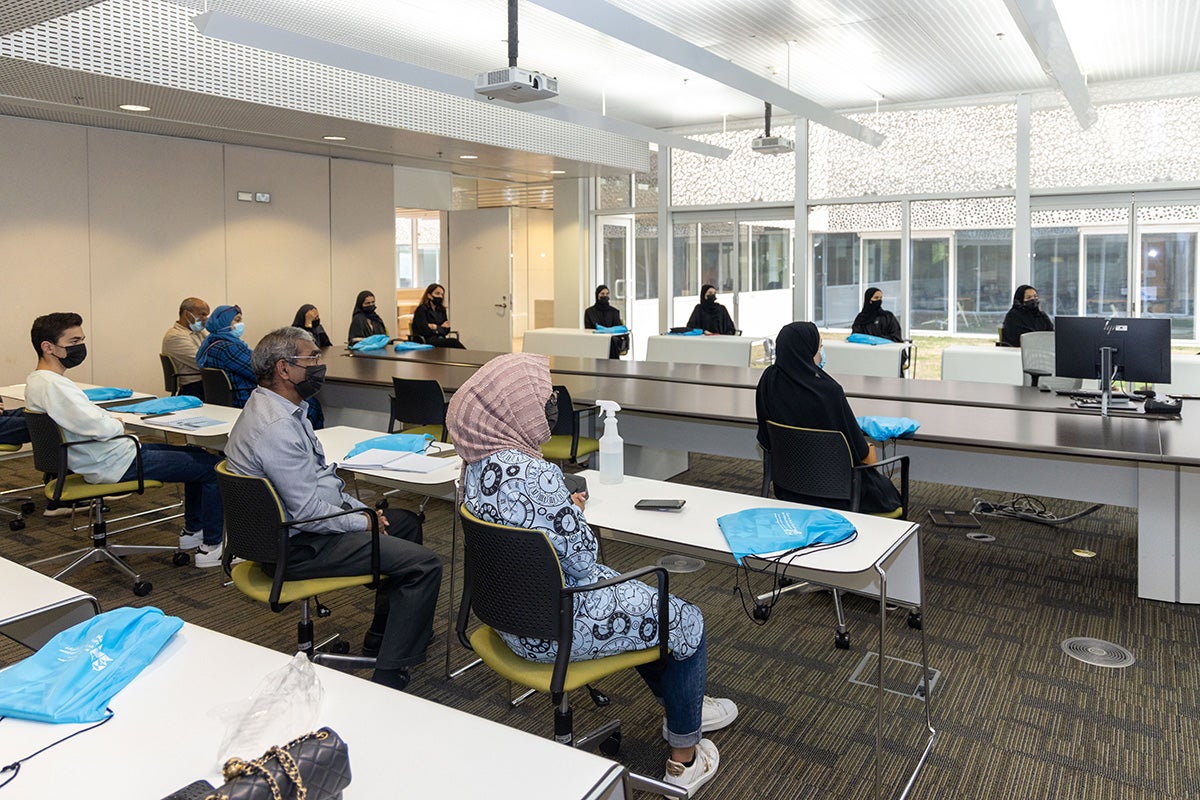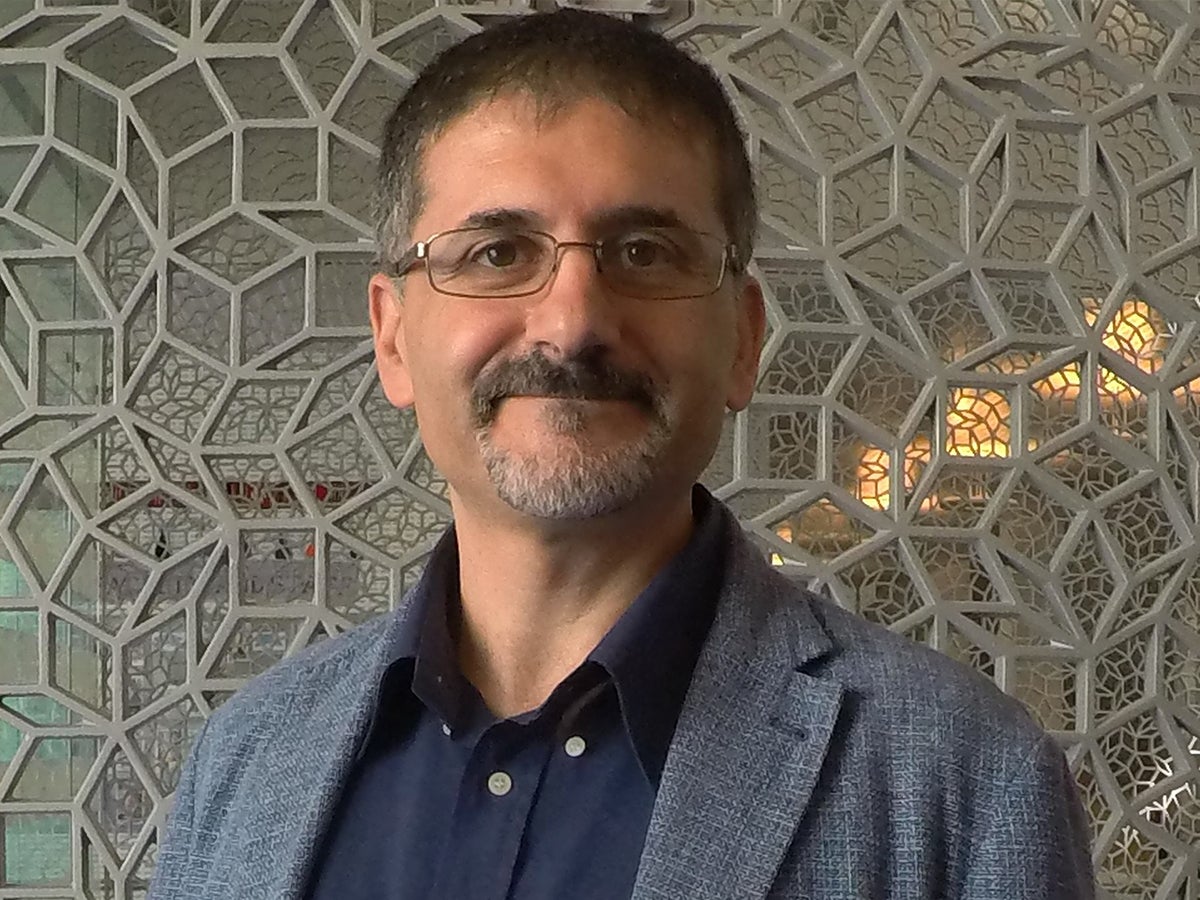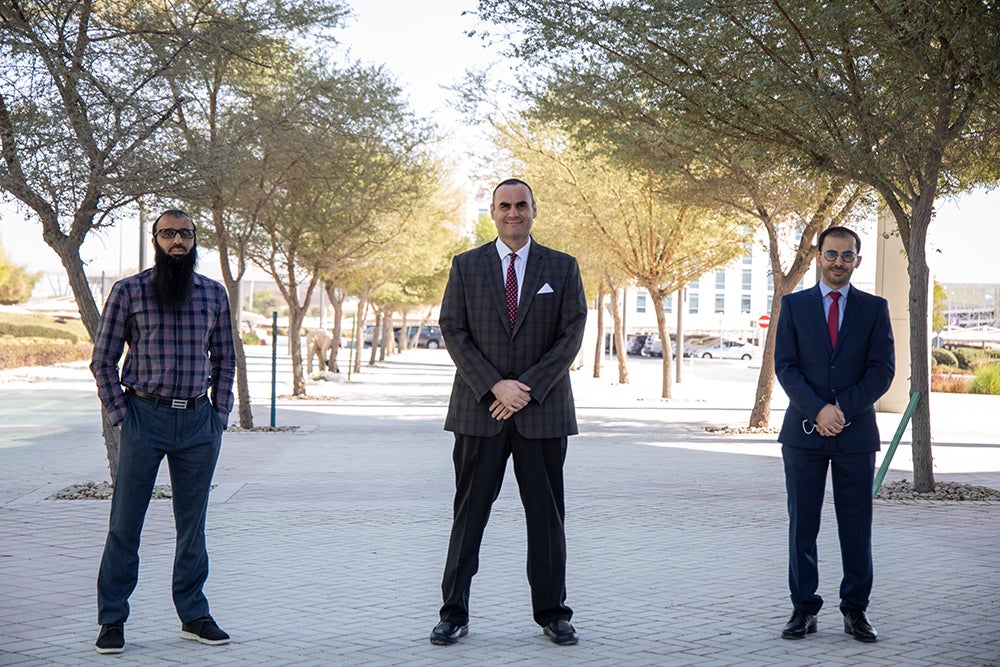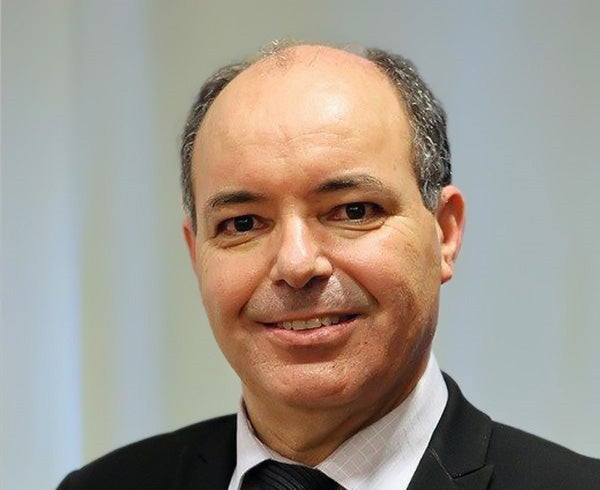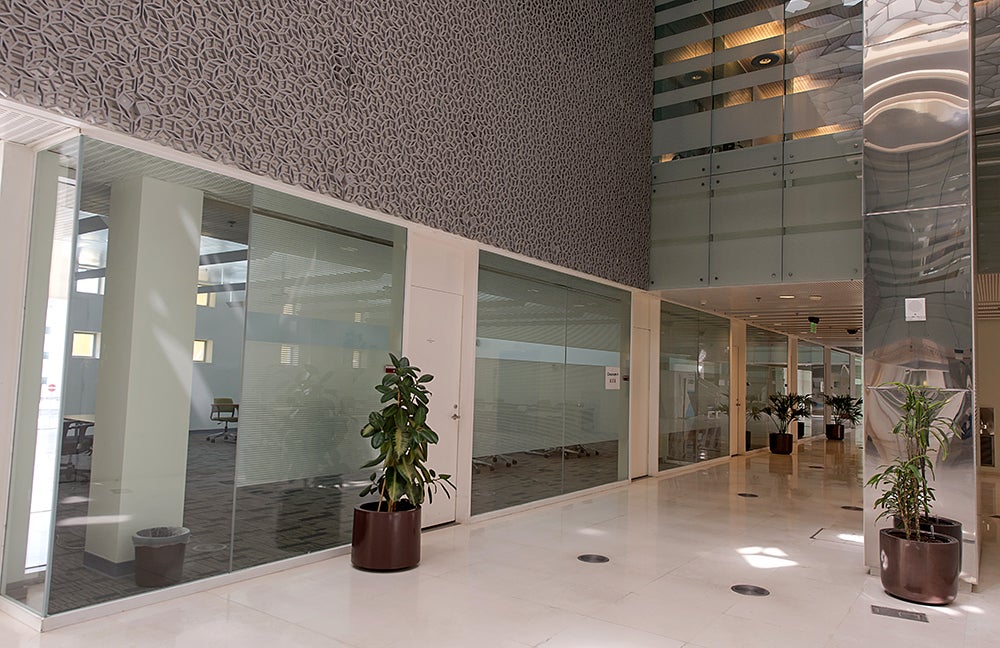
Tell us about the measures that the college has taken as the academic year comes to an end.
With the academic year coming to an end, eight PhD students have discussed their theses online, including two students pursuing a PhD in Computer Science and Engineering, three students pursuing a PhD in Sustainable Energy, and three in Sustainable Environment. At the master’s level, 44 students have discussed their theses in various areas such as data analysis in health management, cybersecurity, data science and engineering, logistics and supply management, and sustainable energy and environment. Our students are expected to graduate by the end of this year.
The College of Science and Engineering (CSE) faculty leverage innovative tools to improve the online learning experience through the specialized Cisco Webex remote communication platform. The college also uses the Google Colab and Python platforms to provide a high-quality learning experience and to enable students to remotely enroll in additional classes.
In addition, the college is offering classes in data science through YouTube, an initiative that has been sponsored in part by Ooredoo Qatar.
Tablets and iPads are among the main devices used in these interactive courses, in addition to a variety of platforms being used to remotely communicate with students, solve equations, and share additional videos.
Last but not least, we are contributing to the development of the quantitative reasoning skills of our mathematics, science and computer science students, through entertaining and challenging interactive activities on www.brilliant.org.
What research projects is the college undertaking to confront the outbreak of the coronavirus in Qatar?
CSE has dedicated a great deal of attention to applied research that has proven beneficial to the scientific community and society at large. In this regard, the college is developing several applications that are specifically designed to keep abreast of COVID-19-related developments and support various stakeholders and community members.
These include applications to predict whether a patient may require early intensive care before severe symptoms appear. The goal of this app is to reduce the number of COVID-19 patients that may require hospitalization, which could put enormous strain on the country's medical resources.
If we can predict how many patients may need intensive care, hospital staff will be able to focus on monitoring the health conditions of those patients and to take swift, timely actions. On the other hand, patients with mild symptoms who do not require access to intensive care units can turn to quarantine facilities instead of hospitals. The project applies the principles of artificial intelligence (AI) to assist physicians, especially radiologists.
The AI system works as follows:
First step: Uploading X-ray images into the AI system. These images include all X-ray examinations that the patient has undergone since their infection was confirmed.
Step two: The AI platform analyzes X-Ray images and their results.
Step three: The system offers an assessment of the patient's need for an intensive care unit.
Other research projects that the college is currently undertaking include an AI-based mobile app for self-assessment of COVID-19 infections. Amid the increase in the number of COVID-19 cases, people have become increasingly concerned. This technology seeks to enable users to perform a simple and fast self-examination, using a mobile phone.
The app provides an innovative solution because the majority of the self-assessment tools currently available are survey-based. Respondents are asked about their recent travels, or if they have experienced any of the symptoms associated with the virus, such as fever, cough, and shortness of breath. These surveys rely on self-assessments and may require access to a thermometer that is not always close at hand.
The new app requires users to lie down and place the smartphone on their chest for 30 seconds. The app then measures the user's heart and respiratory rates, using the phone's accelerometer and artificial intelligence-based signal processing. As a last step, the app analyzes the user's average heart and respiratory rate.
What do you think of Qatar Foundation’s research and development sector?
Hamad Bin Khalifa University, an integral part of Qatar Foundation, provides a unique educational experience with scientific research lying at the heart of the institution's mission. At CSE, we benefit from the knowledge sharing, exchange of expertise, and the support that the sector provides in an integrated environment to ensure a unique and positive experience that will enhance our research efforts and leverage them to serve various national industries.
Dr. Saif Al-Kuwari is an Assistant Professor at the College of Science and Engineering at Hamad Bin Khalifa University, and an adjunct Research Assistant Professor at Kindi Center for computing research, Qatar University. Dr. Al-Kuwari holds a Bachelor of Engineering in Computers and Networks from the University of Essex, UK (2006), and two PhDs in computer science from the University of Bath, UK (2012) and Royal Holloway, University of London, UK (2012).
Related News
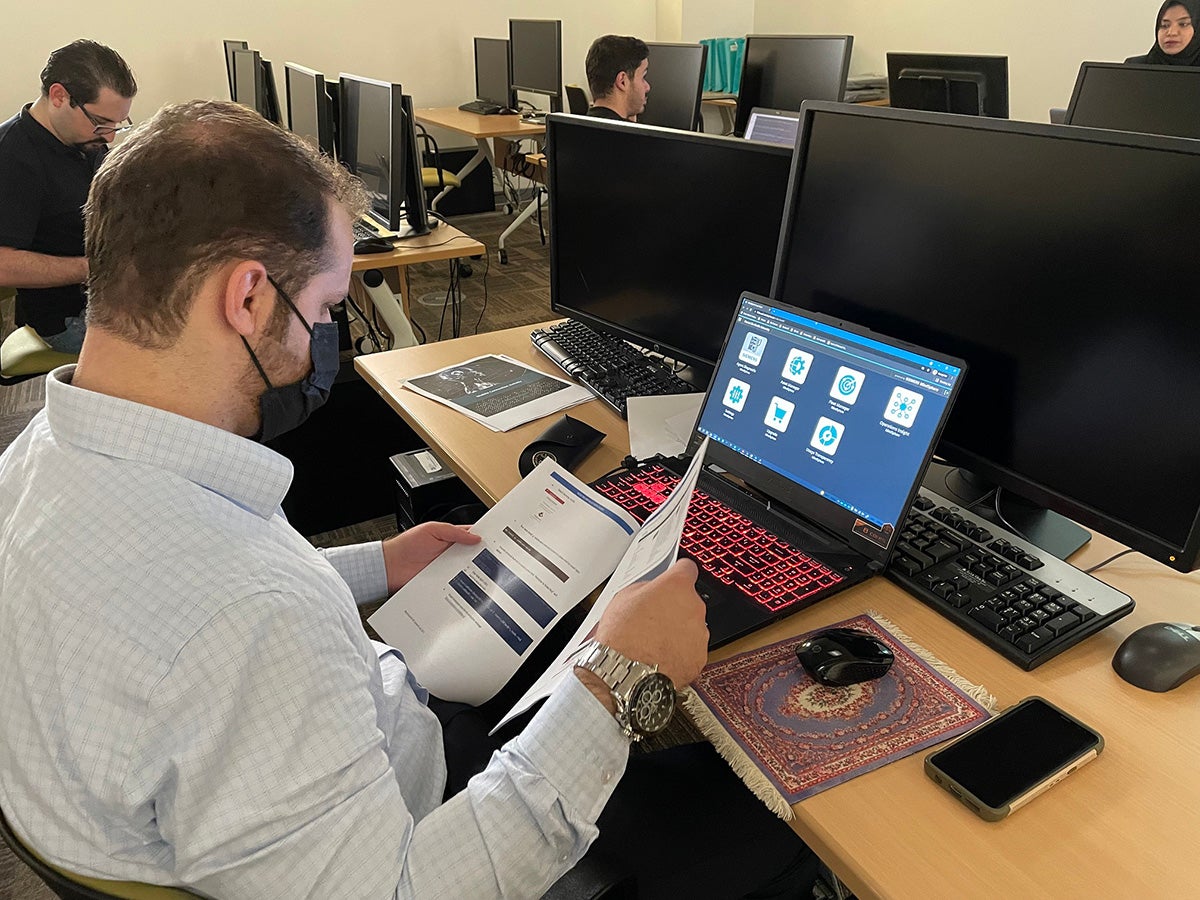
College of Science and Engineering Teams Up With Siemens Qatar to Deliver Digital Skills Training for Students
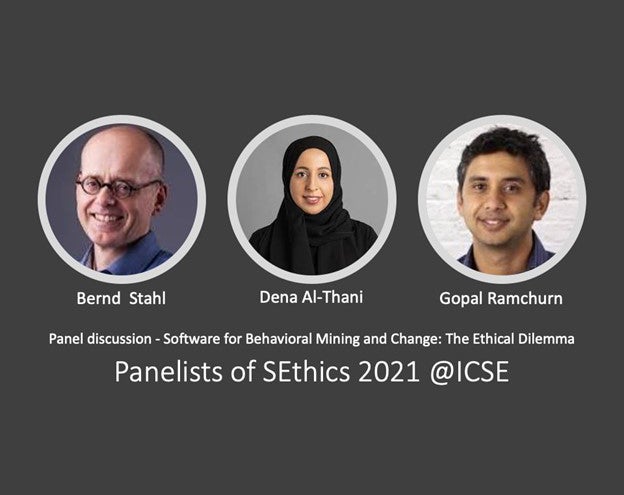
College of Science and Engineering Faculty Chart a Course for Ethical Software Engineering at International Workshop
